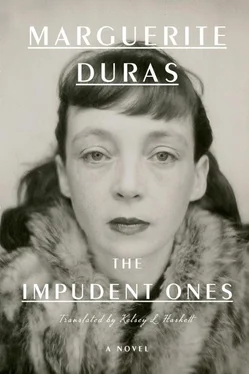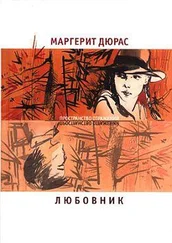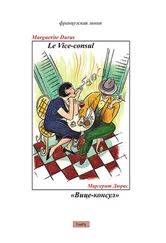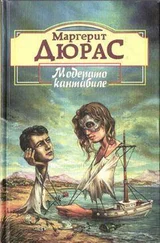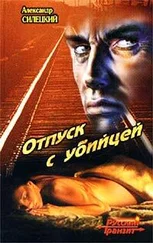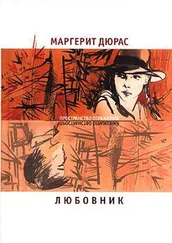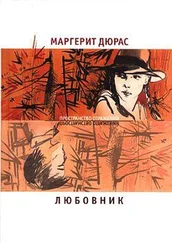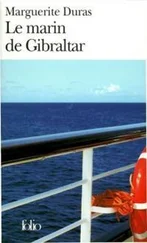But soon she felt hungry and she tottered. Her empty head was filled with a harsh ringing noise, and her legs carried her as feebly as if she had been walking on the bridge of a boat. She had experienced this sensation for some time. She entered a café and drank a coffee with cream. She gently inhaled the odor, her arms leaning on the damp counter, and each sip made her feel a bit more comforted. The air in the café was humid and acidic, and saturated with human breath.
Soon Maud felt better and ordered another coffee. Customers were continuously coming and going. As they brushed by her, they stared and judged her. When she raised her eyes, she met their gazes, some simply curious, others already emboldened. A kind of irritation seized her. She stared at them in turn with an impertinence that was supposed to be courageous but only looked ridiculous.
“Dogs,” she said to herself, “they’re dogs; they’re not going to leave me alone…” The men noticed her look and shrugged their shoulders. She calmed down after that and felt embarrassed… She went out.
It was then that the day appeared to return to its true worth, stretched out between empty hours. If she had a task to accomplish, it would take her at most a few minutes. But what would become of her until then? And yet it seemed impossible for her to imagine acting any differently. She thought of nothing and no one except the agonizing abyss of the day into which she was slowly plunging, and which seemed to close in over her like the sea over a living shipwreck, too slow to die or reach the bottom.
However, she had already experienced empty days, from winter days with few hours of light, to those spent in her room at Uderan, contemplating without really seeing the summer landscape swollen with heat. But today didn’t resemble any other; it was too resistant, too deep, too long to journey through.
As time went by, she found herself more and more alone, ever farther from the familiar shores of her life. The thing she had to do gradually took on more importance, without becoming bigger, and became more and more precise, while around her everything became vague and blurred and disappeared, as Maud found herself alone with it…
This vision didn’t stay with her. Both annoying and tempting at the same time, it was no different than Maud herself. It was not exactly like a mirror, in which she couldn’t have avoided seeing herself, but rather the very image of her solitude—a mirror over which she leaned, knowing only that she should have seen herself there, that she was there… without seeing herself.
Soon there was nothing but the two of them, this image and herself, in the immense sadness of the world. Maud knew that the only way to have done with the day and everything else was to do the thing she had in mind, which presented itself to her with more and more urgency. But, through sheer fear, she didn’t yet dare to break this last mooring cable.
She walked quickly and soon had covered quite a distance along the route her mother used to take her sometimes on Sundays. Today the idle strollers were missing; in thinking back, Maud no longer recognized herself in the little girl who walked, tired and dreamy, beside Mrs. Taneran.
Clamart was already distant, although looking over her shoulder she could make out the huge white hulk of the building in which they lived. Fog enveloped it, and the different floors could not be distinguished one from another. “As soon as I reach the woods of Meudon,” she told herself, “I’ll come back toward Paris. And while I’m waiting, I’ll go to our neighborhood.”
She killed time as best she could, continually fascinated by the thing she had to do, but not yet feeling resolved enough to do it outright, shamelessly. Patiently, she let herself be vanquished. She was waiting for the idea that had seized her, and to whose power of suggestion she was confusingly subjected, to come about on its own.
At the edge of the Meudon forest, she avoided going into the shadows cast by the trees and turned back. The lunch hour had passed, and people were returning to work. All at once, Maud found herself in an abandoned garden, which looked to her to be public, on account of the number of children playing there. She sat down for a moment. She thought about lunch. She had some money in her purse, but after starting out toward a restaurant, she came back to the garden, finding it unnecessary to eat.
A freshness fell from the foliage of the chestnut leaves. No one passed by in front of her, and from the bench where she was sitting, at the corner of the garden, she followed the boisterous movements of the children who were running around, stirring up visions of astonishing lightness. The world was in its place, diverse, immense.
Back home, life was probably continuing on as usual. They ate late. Right now, her brothers were snoring, and her mother was busy, lovingly preparing a meal. At noon hour she would say simply, “Let’s sit down at the table without that crazy girl…” If Mrs. Taneran was a little worried, her worry was only on the surface. This dirty business with the Tavares Bank was at most a question of money. At worst, she would be obliged to appropriate the sum of money paid by the Pecresses. If they found fault with that, she would come to a private agreement with them. She would know how to handle them. At any rate, the whole thing would be put off until later.
All of that wasn’t worth her slowing down the sacrosanct schedule of the day. As for forgery, she had confidence in her son. Her son could not do anything really wrong. He could deceive people, of course, and appear odious in the eyes of some… So what! She laughed it off—she, his mother, knew that all of that was only filthy foam floating on pure water, on the delightful nature of her child.
“He’s a fake, of course,” she must have said to herself, “but he’s my son. He has reasons for not hesitating to do what he did.” She felt strong and peaceful, as in the early days of her maternity. Life was going just fine.
In the shade, Maud gently reflected on the thing that wouldn’t leave her. She thought about the mother of her childhood, her childhood with its soft gray eyes. And this woman still showed her gentleness. Oh, what a vile deed she was going to carry out against her, what a nasty job, indeed! She tried not to think about it. “When Jacques leaves, Mother will die of grief.”
She couldn’t do anything about it. Her mother had died the night before. She could envision her mother in the future, wrapped up in the memory of her absent son, alone with old Taneran. Maybe at that moment she would expect some tenderness from her daughter. Mrs. Taneran would be exalted by misfortune, lost in a final illusion about her son.
Around three o’clock, Maud went back to her neighborhood, as she had promised herself she would do, but avoided crossing Clamart. The detour she obliged herself to take would be long, but her legs would have taken her even farther, if only she had been able to escape the infernal circle drawn around her by her idea. Little by little, walking very quickly, she lost sight of her family, as well as her reasons for sacrificing them forever. In one go, retracing her footsteps, she arrived at the police station of Clamart.
All of a sudden, she found herself in front of the clerk of the police station, standing still and feeling stupid, encumbered by her own body, whose weight was no longer lightened by the walk. And immediately she had the impression that the thing substituted itself for her.
“You have come to our place several times, regarding my brother Jacques Grant,” she declared in a firm voice. “It’s about the Tavares Bank. Well! I’ve come to tell you he’s back…”
The clerk appeared surprised. He went toward the cupboard and pulled out a yellow file. Maud would have liked to leave. He said to her in a haughty voice, “Wait a minute, I’ll take a look…” One minute, three minutes, five minutes, went by while the man consulted his file. Maud stood near him, her mind a blank.
Читать дальше
